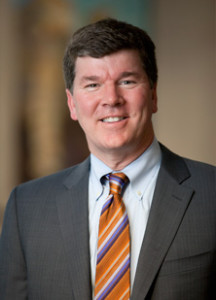Personalized Medicine & Companion Diagnostics: Speaking with Keith Stewart, Director of the Mayo Clinic Center for Individualized Medicine
Editor’s Note: This week, we sit down with Keith Stewart, director of the Mayo Clinic Center for Individualized Medicine.
Real World Health Care: Why was the Center for Individualized Medicine formed at the Mayo Clinic? What were its initial goals and how have those goals changed?
Keith Stewart: The Center was formed in 2012 with the idea that it would harness the power of the human genome to improve health care for our patients. It was considered to be one of three transformative initiatives for the future of the Mayo Clinic and a discipline in which Mayo Clinic should be a leader.
RWHC: How has personalized medicine and the work you’re doing at the Center for Individualized Medicine helped the Mayo Clinic to improve health outcomes?
KS: By using the genome as a lifetime resource and not just a “one and done” test, we believe we will lower the costs of health care. For example genomic knowledge will improve the precision of diagnosis, reduce unnecessary testing, allow the right drug at the right time and ultimately improve health outcomes.
RWHC: What types of companion diagnostics are being conducted at the Center for Individualized Medicine to identify the best therapy for individual patients?
KS: Many. One good example is pharmacogenomics where we have created 18 drug alerts in the electronic health record already. But we have many other examples: cancer gene panels in prostate cancer, glioblastoma, myeloma, sarcoma, and colorectal cancer. Panels in cardiac disease and neurology, for example in peripheral neuropathy, epilepsy, and movement disorders. And, of course, whole genome sequencing for families with rare diseases.
RWHC: In your opinion, what is the most exciting translational research being conducted at the Center for Individualized Medicine?
KS: I am very excited about our work in the microbiome and how that will impact human health and how we might use genomic sequencing in infectious disease to identify pathogens that are hard to culture. But there are many such areas. We will be sequencing the pharmacogenomes of 10,000 of our patients and launching clinical trials in the areas of organ transplant and immune-oncology next year.
RWHC: Where do you see the future of blood cancer-related personalized medicine and companion diagnostics heading?
KS: As an example we have built and are launching a gene panel in myeloma which identifies mutations but will also call common translocations. If successful this should replace the era of conventional cytogenetics and FISH testing. The same will be true in acute leukemias and lymphomas. A major area of interest is in immune-oncology and we will be launching trials in this area next year to understand how genomics can select for patients most likely to respond.
RWHC: When full-genome sequencing becomes routine, what sort of information do you envision healthy people obtaining and applying as a result of having their genome sequenced?
KS: I think the answer may not be what most people expect. Yes, we will find medically actionable things such as carrier status and pharmacogenomics, but to me, the most important thing might end up being what is negative. As an example, when I had my genome sequenced, it struck me that I would never again have to have any other genetic testing done for the rest of my life. So, if I have a blood clot, cancer, or develop Parkinson’s or dementia, I already know I am negative for the currently understood genetic risk factors.


















